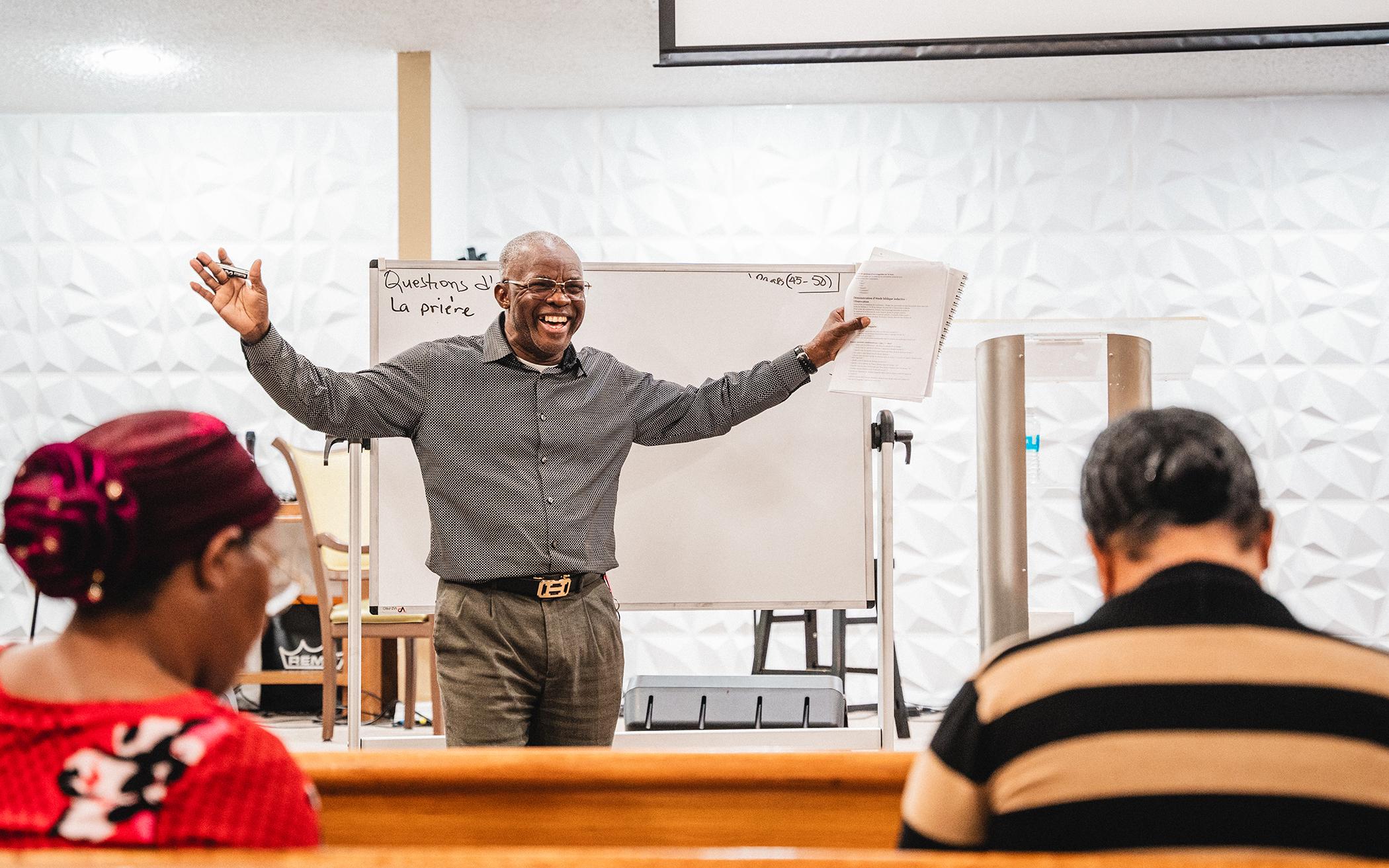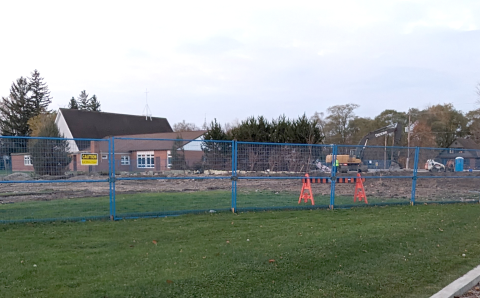Si Dye vle.
In Haitian Creole, it means “if God wills.”
“I’ve learned that Haitians embody this attitude that you don’t know what’s going to happen tomorrow,” explained Johnny Gryglewicz, a missionary with Resonate Global Mission. “If you’re saying goodbye to someone with plans to see them the next day, they’ll say “Si Dye vle.” If you don’t say it, someone will say it for you. … In Haiti, every day is an act of faith.”
Gryglewicz and his wife, Kim, moved to Haiti in 2018 to serve as missionaries with Resonate Global Mission. Ever since, their future has been uncertain, and so has the future for the people of Haiti.
Haiti is a country that has long suffered from economic poverty. Gryglewicz says it seems to only be getting worse. Hurricanes, tropical storms, and earthquakes have ravaged the land. Following a presidential assassination, gang violence and kidnappings have made daily life dangerous.
In 2021, it was no longer safe for Gryglewicz, his pregnant wife, and their two daughters to remain in the country. Along with tens of thousands of Haitians, the family had to say goodbye to their home and flee to North America. The Gryglewicz family joined the multitude moving to Florida, where Haitian Creole is now the third most-spoken language.
“God has used it,” said Gryglewicz.
In the midst of an uncertain future, it seems God has a plan. God is weaving together the stories of the Gryglewicz family, a pastor from Haiti, and local Christian Reformed churches into a tapestry that can welcome and empower new Haitian communities in North America.
A Haitian Pastor with a Heart for the Church
Pastor Obelto Cherubin has left Haiti twice.
In 1980, he moved to the Dominican Republic, where he met Resonate (then Christian Reformed World Missions) missionaries who saw his passion for church and sharing the gospel. Cherubin fell in love with the Reformed worldview, and in 1987 he moved back to Haiti—this time with a Resonate missionary.
Cherubin felt called to plant churches. He felt that there was something special about Reformed theology, and while churches in Haiti were governed by only the pastor, Cherubin liked how Christian Reformed churches raised up leaders in the congregation.
“I love working together—teamwork,” Cherubin said. “I like to see people decide together.”
So Cherubin started the Christian Reformed Church in Haiti.
He worked hard to share the gospel and equip leaders. In fewer than 20 years, he helped plant 23 churches as part of the denomination. But in 2005, he realized his family needed a change. He wanted his children to have better opportunities for education and careers, so he left the denomination in the capable hands of the pastors he had trained and moved to a new home in Florida.
Meeting Needs in the Haitian Communities
For Haitians who have moved to Florida, life is hard.
People struggle to find work and transportation. This makes it hard to find adequate housing, food, clothing, medical aid, and other necessities.
Despite his calling to ministry, Cherubin took a job at Walt Disney World to make ends meet. Yet he continued to see a need for Haitian churches that he couldn’t ignore. In addition to working full time at the park, he started a church that met in his home.
“Most people coming from Haiti don’t know English,” Cherubin said. “They want someone to explain the gospel to them in Creole.”
He started the church with no formal name, resources, or plans. He knew there was an urgency to this work, and he trusted God. Would he succeed? Si Dye vle.
“We are walking by faith, not by sight,” he said. “When I do something, I don’t necessarily believe I can. But I believe God can send people who can help me to achieve my goal.”
And God did. Since Cherubin started the church, it has grown. He connected with Christian Reformed churches in the region and was able to secure a loan from Classis Southeast U.S. for a building that seats 150 people for worship but on special occasions welcomes more than double that. The church also owns four dormitories where Haitian immigrants can live at a subsidized cost.
But with more Haitians moving to North America every day, Resonate and Classis Southeast U.S. recognize this is just the start of God at work in the Haitian community. There is much more the denomination could do to meet this growing need.
Growing as a Denomination and Working Toward a Bright Future
“I see it as a big opportunity,” said pastor Scott Vander Ploeg, president of Classis Southeast U.S. “Knowing Pastor Obelto’s role in starting the Christian Reformed Church in Haiti and how that took off, it’s obvious to me he could do it again here in Florida.”
And when Gryglewicz and his family moved to Florida, the work became all the more possible. Gryglewicz is able to help bridge the cultures of Haiti and the United States. He has helped Resonate and Classis Southeast U.S. work more closely with Cherubin to train more pastors and plant more churches.
In January of 2023, Resonate and Classis Southeast U.S. provided funding for Cherubin to quit his theme-park job and focus full time on pastoring his church and raising up leaders to plant more churches. Gryglewicz meets with Cherubin once a week and helps communicate and meet any needs that arise, whether it’s funding for a training or a printer to provide training materials to pastors.
Cherubin is currently training a group of about a dozen people in Orlando in church planting, a Reformed perspective of ministry and theology, and building a network to help them plant churches. He recently started another training cohort in Miami.
Resonate and Classis Southeast U.S. have both pledged to support the leaders Cherubin is working with when they’re ready to plant their churches. Cherubin’s goal is 10 new churches in five years—si Dye vle.
“It’s good to have a community you can join—and that’s why I think church is so important,” Vander Ploeg said. “The Haitian communities here face the problems everyone faces. Life is difficult, and there might be sickness, there might be family problems, there might be economic problems. But now you can’t speak the language, and you don’t know the culture.”
“The church is very much seen as a resource,” Gryglewicz added. “A lot of the work that the church does is helping to meet physical needs: clothing, food, finding jobs, helping with documentation.”
While the future may still feel uncertain for Gryglewicz, Cherubin, and the tens of thousands of Haitians living in a new land, Gryglewicz and Cherubin have faith that God is at work.
“Working with this has really got me excited,” Gryglewicz said. “God has Obelto in Orlando. He has me here. He has Classis Southeast U.S., who is for this. Resonate is working toward planting more churches. Could it be God is behind this?”
About the Author
Cassie Marcionetti, Resonate Global Mission








